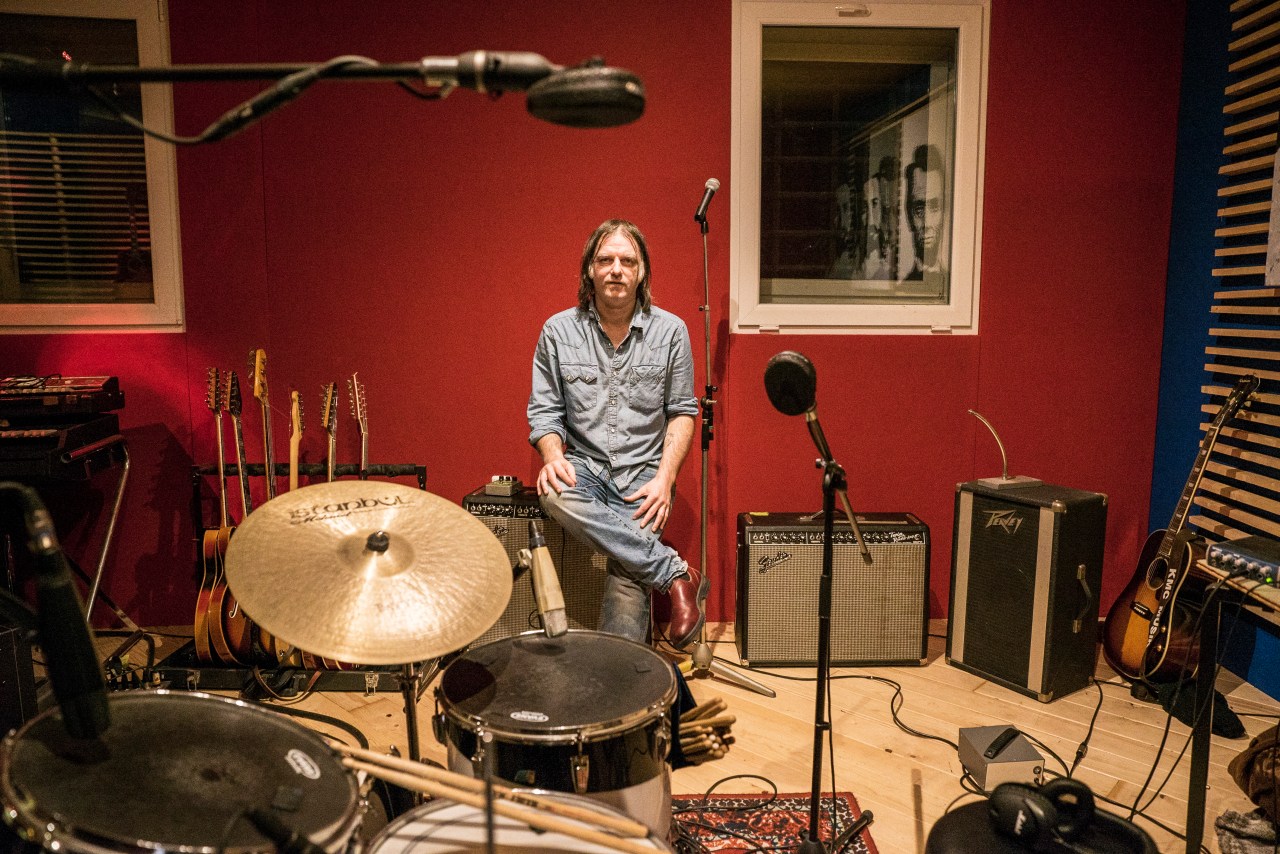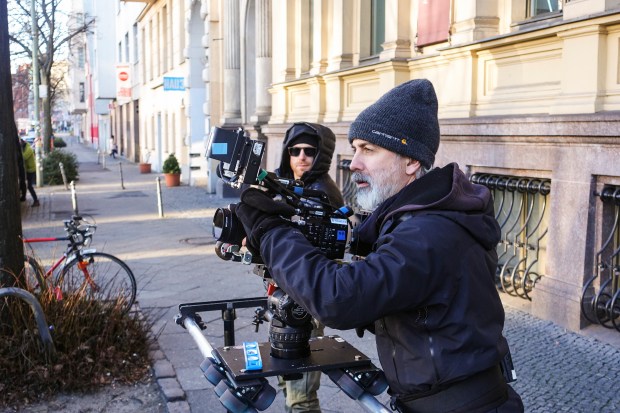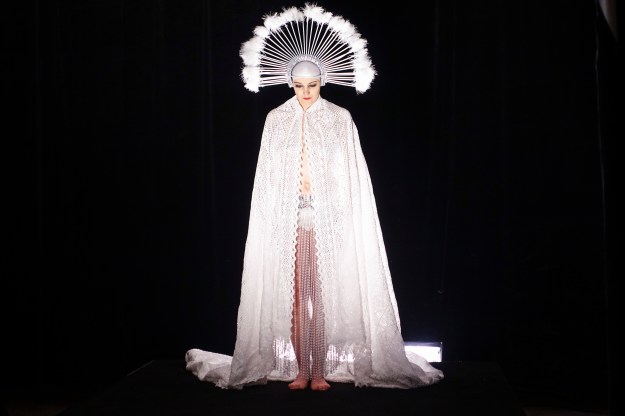Director Nick Brigden and producer Josh Ferrell sit down with producer Helen Cho to discuss the music featured in the Berlin episode, working with Brian Jonestown Massacre frontman Anton Newcombe, and creating a headdress.
Helen Cho: Obviously music was a big component of this episode since you collaborated with Brian Jonestown Massacre frontman Anton Newcombe. What music did you include?
Nick Brigden: It was a mix of Brian Jonestown Massacre songs—among them “Remember Me This” and “Nothing New to Trash Like You”—and an original song that Anton gave us.
Cho: Who chose the Brian Jonestown Massacre songs that were played?
Brigden: Josh chose them and he chose well. I imagine he spent a long time in his garage office mulling over the BJM catalog.
Cho: How did Anton end up being a sidekick in the show?
Brigden: Anton is good friends with actress and filmmaker Asia Argento, and Tony has always been a big fan of his music, so we went to Berlin in the dead of January to hang out with him. He welcomed us to his home, his studio, and his kitchen. It was a really unique experience to spend time with Anton—he’s truly brilliant and was an incredibly warm and generous host to us.
Cho: Aside from Brian Jonestown Massacre, what movies and music did you reference prior to shooting the episode?

Josh Ferrell: We were looking into a noir look for the episode, so in addition to the obvious Metropolis influences, we watched films like Kiss Me Deadly and Touch of Evil. And we were also listening to a lot of David Bowie [who lived in Berlin in the 1970s].
Cho: It may have been the first time we included voice-overs from someone other than Tony in the show. How did Anton’s narration for the meal scene come about?
Ferrell: As you know, we always want to include as much information as possible about the meals being prepared. In this scene, there was a lot happening at once. We had Anton creating a song and then making a giant dinner for 14 people. I was just trying to stay out of his way as he was charging around to make it all happen, so I didn’t have too much time to sit down and have the whole “Hey how’d you make this gigantic meal?” conversation. Once we were done filming, I asked him if he could just send an audio recording of how he made the meal. He sent it right to me, and we all thought there was something pretty amazing about the recording, so Nick ended up just using it in the show. I think it also just helps to go inside the mind of Anton.
Cho: Nick, you’re the only director on the crew who sometimes shoots but always edits the episodes you work on. In what ways do you think that informs or changes your approach to directing?

Brigden: I started my career shooting, and I occasionally pick up a camera when needed in the field but am certainly not at the high caliber of the directors of photography we have working on this show. I’ve always directed and edited my own work, and it’s a nice balance for me to get out into the field a few times a year.
I think a good director knows exactly the elements they need in the field to build well-structured scenes in post-production. Being an editor and knowing how the parts fit has always helped in that. The other benefit of directing and editing is that if I screw up in the field, I can quietly fix it in post- and nobody’s any wiser!
Cho: A question viewers ask often is how you choose the music to go along with episodes. Since you also edit your episodes, can you talk about that process?
Brigden: Music has always played a huge part of this show. Mike Ruffino is our wildly talented series composer, who writes and creates dozens of original tracks each season. Sometimes we also have local musicians in the location we’re shooting contribute music or do a live performance. Other times, like in Berlin, we’ll have well-known musical artists, like Anton, who are part of the show and provide us with an entire soundtrack from their catalog or create original compositions for us. Every episode is different, but what is constant is how music can inform how the viewer takes in what they’re watching on an emotional level.
Cho: There’s a burlesque dance sequence over the credits at the end of the Berlin show. How’d that come together?


Brigden: Fritz Lang’s Metropolis is one of my favorite silent films of that era. It’s a visual masterpiece—way ahead of its time—and is considered the mother of all sci-fi movies. There’s a Weimar era–style dance sequence in the film that we wanted to emulate, and we were able to hook up with a local cabaret performer, Laurie the Fox, who quickly learned all the dance moves. Though we couldn’t use Metropolis in the episode because of copyright issues, it was our way of tipping our hats to Fritz Lang’s extraordinary work.
Ferrell: To me the most interesting thing about that whole sequence was that the costume Laurie wore was made by Nick and his wife, Carrie.
Cho: That’s amazing. Nick, is that true?
Brigden: Yeah. I had actually ordered a headdress from someone on Etsy from Ukraine, but it got held up in transit and wasn’t going to arrive in time for the shoot. So my wife, Carrie, and I decided to make it ourselves. I wanted the dress to have some dimension and weight so that when Laurie danced, it would have the right movement to it. After a lot of searching, we found ball bearings and other materials to make the whole thing. On Christmas evening, Carrie and I found ourselves in the basement, gluing ball bearings onto the dress to finish the piece. Of course when I got back from Berlin, the headdress I ordered online had arrived, but it wasn’t nearly as good as ours.
This interview has been edited and condensed.